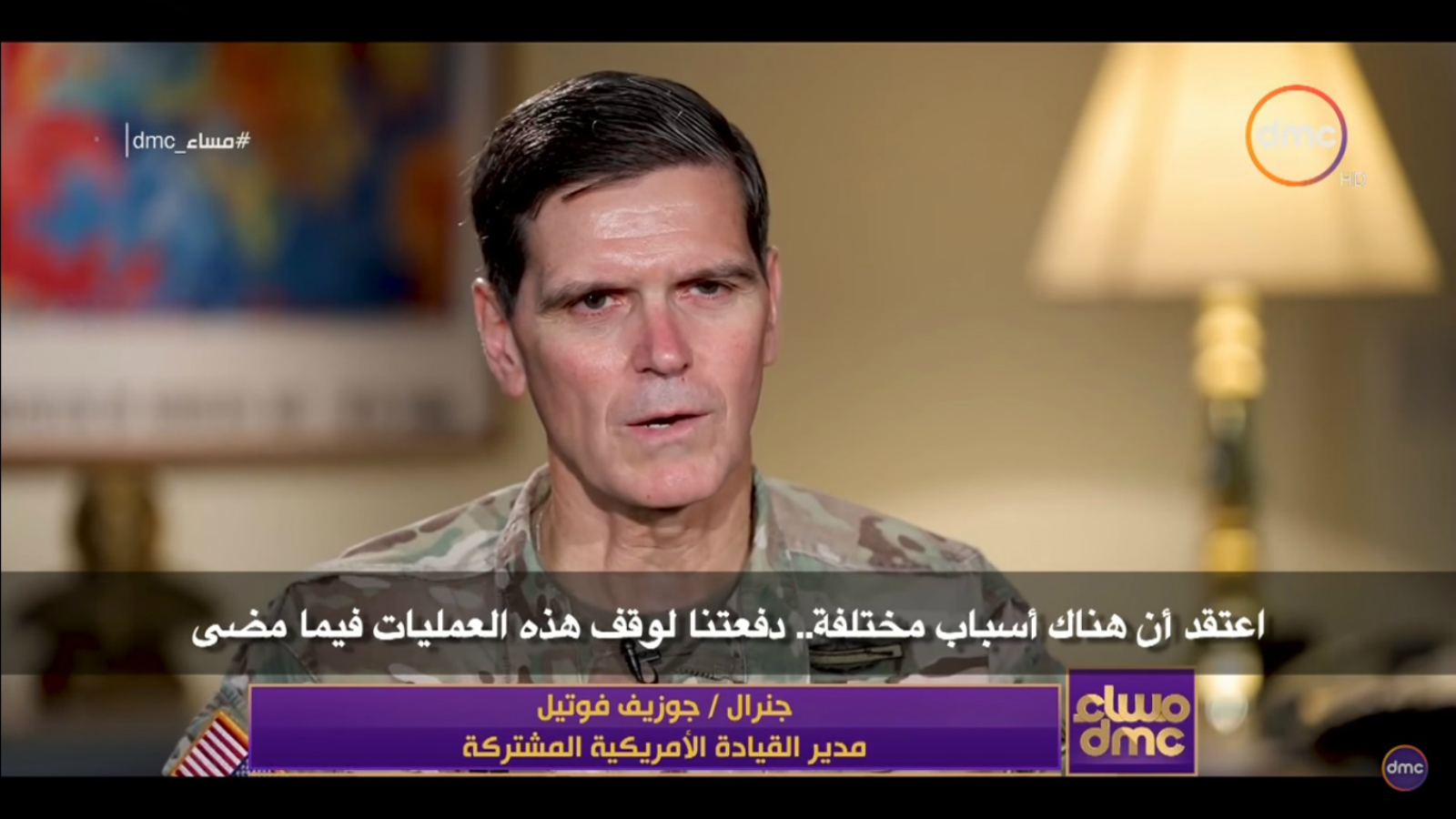Centcom boss shows the stars ‘n stripes on Masaa DMC

The highlight of the night was an interview with Gen. Joseph Votel, commander of USCentral Command, on Masaa DMC. It was otherwise a mixed bag of nuts last night, with topics ranging from the energy sector to institutional corruption. Surprisingly absent: Coverage of the AFI financial inclusion summit in Sharm being co-hosted by the central bank, which the local print media has been fixating on all week.
The resumption of Bright Star was not only significant to US-Egypt relations, but for theregion as a whole, Votel told host Osama Kamal (watch, runtime 4:13). “The US knows it can’t fight terrorism alone, and that they can depend on partners,” he said. “It is very important to have a mechanism of sharing information to make sure that Egypt has the best understanding of what is happening,” he added. Votel gave a brief rundown on the war games, saying they include both staff exercises and live-fire exercises on the ground (watch, runtime 5:34).
Votel only briefly touched on the recent tension between the two countries after an aid cut that many believe was not about human rights, but designed to pressure Egypt to break ties with North Korea. “There certainly going to be some disagreements, but we can work through these disagreements. Bright Star is an example; we stopped it eight years ago, but now it is back because we recognized the importance of it,” he said (watch, runtime 5:41).
All in all, it was nice to see a senior US official go on television and speak directly to Egyptians and strike a positive note, even if it was someone who wears fatigues for a living and not a dip.
Kamal wasn’t done yet, going on to interview Oil Minister Tarek El Molla, who discussed the notion (which we reported yesterday) to have Aramco refine Saudi oil in Egypt. El Molla says the talks include having Aramco diversify the oil products shipped through the SUMED pipeline to include fuel oil and butane gas, as well as crude oil. The minister noted that, while Aramco owns 15% of SUMED’s shares, it accounts for 55% of its turnover (watch, runtime 9:38).
Over on Hona Al Asema, Food Industries Holding Company head Alaa Fahmy dismissedthe notion of private-sector investment in public companies, telling host Lamees Al Hadidi that it would be unnecessary. We all miss the 1970s, don’t we, Alaa? He then droned on about some tuna factory reopening (watch, runtime 6:47), making us wonder: Why do even educated journalists so unquestioningly fawn over functionaries from the black holes that are state-owned enterprises?
Infinitely more relevant: Lamees resumed her weekly women-focused segment, HonaAl-Settat, which centered on the issue of gender parity in inheritance (watch, runtime 4:45).
Over on Kol Youm, Amr Adib bellowed and gesticulated about government corruption and the Administrative Control Authority’s consistent efforts to arrest officials involved in graft, which he says send a clear message that the state is committed to fighting corruption (watch, runtime 24:31).
Yahduth fi Masr’s Sherif Amer remained preoccupied with the terror attacks in NorthSinai earlier this week, for which the head of the National Center for Security Studies Khaled Okasha pointed the finger of blame at Qatar.